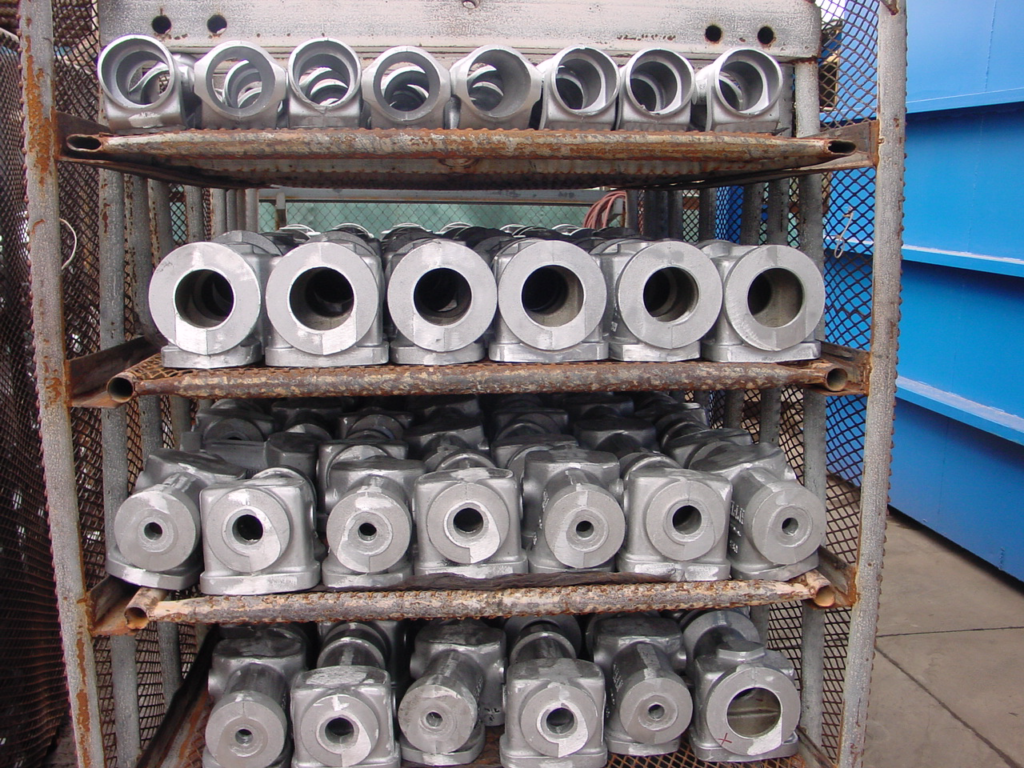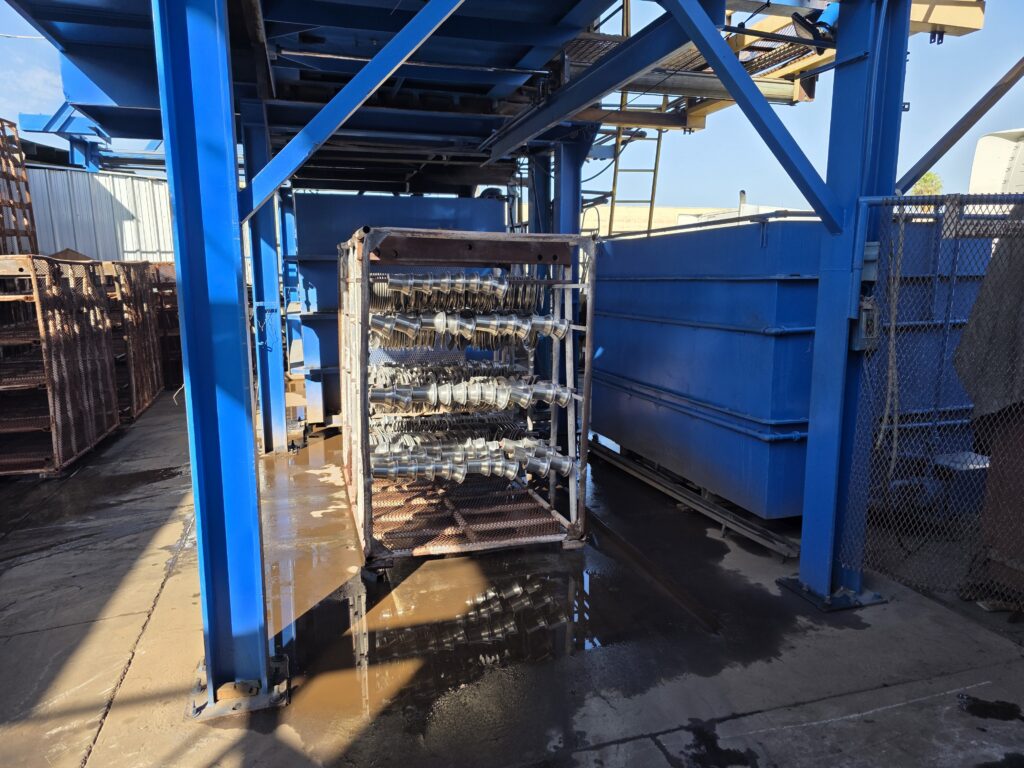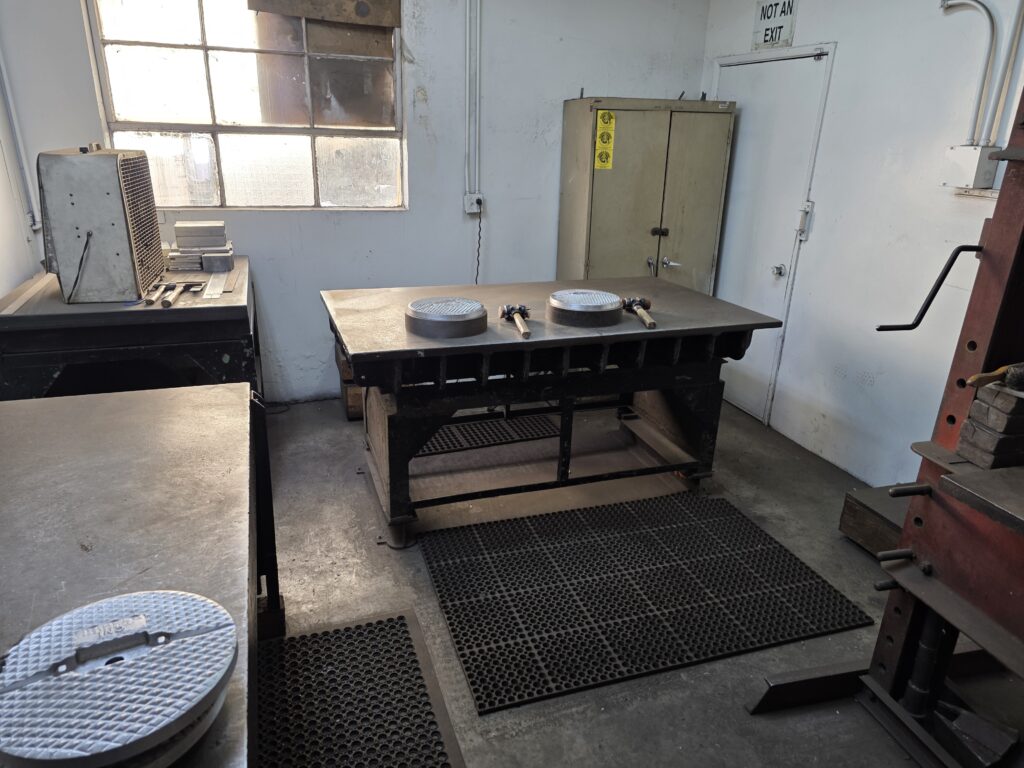Welcome To The Al Mag Heat Treat
We provide a full range of Aluminum Heat Treating services tailored to your specific needs. Our state-of-the-art facility is designed to efficiently handle everything from small custom orders to large-scale production with precision and reliability. For specialized processing requiring dedicated equipment, we develop and implement engineered solutions to meet your exact specifications. With industry-leading technology and a highly trained team, we deliver exceptional quality and performance in every project.

Heat treatment
Heat treatment is an essential process that enhances the strength, hardness, and durability of metals. Through precise heating and cooling techniques, manufacturers can optimize mechanical properties, improving resistance to wear, stress, and extreme conditions. Key methods include annealing for improved machinability, quenching for increased hardness, and tempering for enhanced toughness. By ensuring metals meet strict industry standards, heat treatment plays a vital role in aerospace, automotive, and construction applications, delivering superior performance and longevity.
Stress Relief
Stress relief is a heat treatment process that reduces internal stresses in metals caused by machining, welding, or cold working. These stresses can lead to cracking, warping, or premature failure under load. By heating the material to a specific temperature and cooling it slowly, stress relief improves dimensional stability and mechanical performance. This process is essential for components used in high-pressure or high-temperature environments. Industries like aerospace, automotive, and construction rely on stress-relieved parts for safety and longevity. Ultimately, stress relief enhances the reliability and lifespan of metal products.


Rockwell Hardness Testing
Hardness testing measures a material’s resistance to deformation, helping assess strength and durability. The Rockwell test is a widely used method, measuring hardness by pressing a steel or carbide ball into the material’s surface under a specific load. The depth of the indentation determines the hardness value. This test is quick, reliable, and suitable for various metals and alloys. Accurate hardness testing ensures components meet quality standards and perform well under stress. It’s essential in industries like aerospace, automotive, and manufacturing. Ultimately, hardness testing helps optimize material selection and product longevity.
Spray Quench
Aluminum spray quenching is a precise cooling process used in the heat treatment of aluminum alloys to enhance strength, hardness, and toughness. This method involves applying a fine mist of water, oil, or polymer-based quenchants to the heated aluminum component, carefully controlling the cooling rate. Compared to immersion quenching, spray quenching reduces internal stresses and minimizes distortion, ensuring superior mechanical properties and dimensional stability.


Dimensional Check and Straightening
A dimensional check is a quality control process used in manufacturing and metalworking to ensure that a part or component meets specified dimensions, tolerances, and geometric requirements. It is essential for maintaining precision, functionality, and compatibility in assembly.
Straightening is the process of correcting distortions, bends, or warping in a metal component caused by manufacturing operations like heat treatment, welding, forging, or machining. It ensures that parts meet required flatness and alignment specifications.





